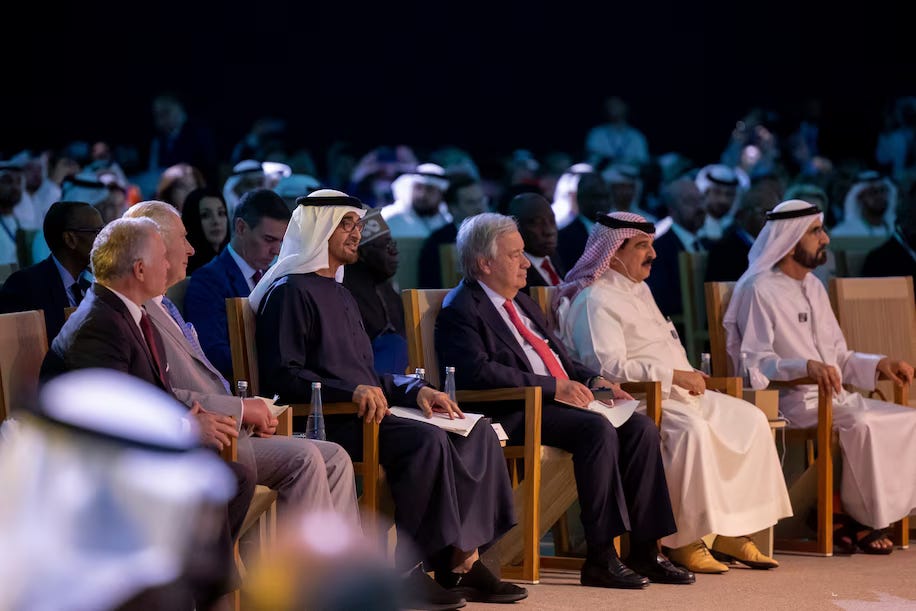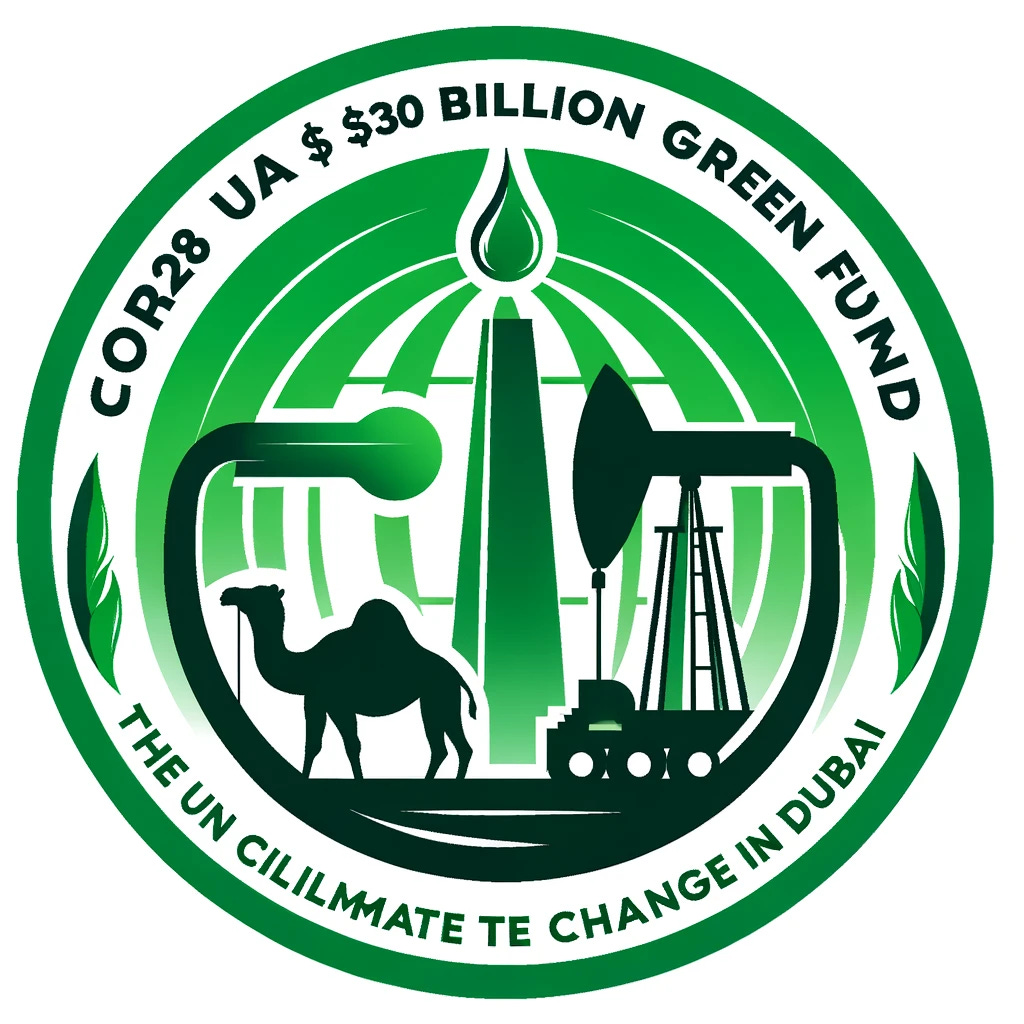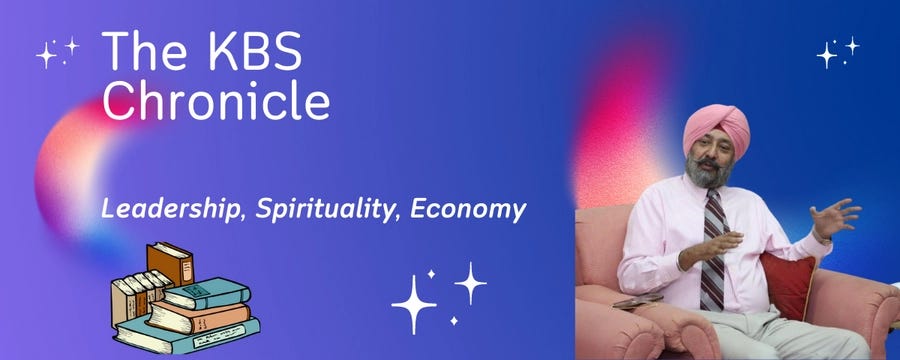Assessing the UAE's $30 Billion Climate Pledge: Oil’s Well That Mends Well?
The Mega Fund announced on the opening day: Well begun is half done.
UAE's $30 Billion Pledge at COP28
On the opening day of the COP28 Summit, the United Arab Emirates (UAE) unveiled not just any announcement, but a climatic commitment in both senses of the word: a substantial $30 billion investment in clean energy and climate initiatives worldwide. This climatic (pertaining to climate) and climactic (signifying a high point) pledge underscores the UAE's active engagement in combating climate change. However, the reliance on oil revenues as the source of this funding prompts a thorough examination of its underlying intentions and potential impact. The UAE plans to direct this fund, managed through the World Bank, primarily towards clean energy projects and infrastructure development in the Global South. This strategic move is aimed at addressing and possibly dispelling concerns about the UAE's commitment to leading the global transition away from fossil fuel dependence.
UAE's Climate Fund and Global Perception:
The UAE's fund is intended to bridge the climate finance gap and stimulate further investments. Yet, it has elicited comparisons to tobacco companies funding lung disease research, highlighting ethical concerns and the moral hazard involved when oil-rich nations lead climate initiatives. Ironically, these countries are significant producers and marketers of the fossil fuels that are a primary source of global warming and pollution. Furthermore, the fund's structure and implementation have been critiqued, especially by representatives from the Global South. They contend that what the World Bank often labels as aid actually consists of dollar-denominated loans. Although these may have lower interest rates, they nonetheless contribute to the financial strain on the recipient nations.

Global South and the Clean Energy Transition
The UAE's fund, aimed at supporting the transition to clean energy in developing nations, faces the critical task of ensuring sustainable development over temporary fixes. In a notable development at the United Nations Climate Change Conference, fifty oil and gas companies, under the guidance of UAE’s Sultan Al Jaber who leads the COP28 event, have committed to significantly reduce methane emissions in their operations by 2030. This charter, representing 40 percent of global oil production, includes major players like Saudi Aramco and ExxonMobil. Al Jaber emphasized the need for transparency and wider participation in this pledge. Meanwhile, contrasting perspectives emerge, as exemplified by the Chinese envoy's remark on the challenges China faces in adhering to stringent methane reduction targets. This scenario sets a backdrop for comparing the UAE’s strategy with other nations' approaches, notably India under PM Modi's leadership, in navigating the complexities of clean energy transition.
Genuine Aid or Marketing Strategy?
While the UAE's initiative is noteworthy, it's imperative to consider whether it reflects a true dedication to climate action or a tactical move to enhance its economy and oil market presence. The fund could act as a driving force for both private and public climate investments. However, there's growing speculation that its primary purpose might lean more towards economic gain than selfless environmental concern. Furthermore, there are emerging questions regarding the fund's release timeline and the specifics of its contribution. If it's an irrevocable addition to the World Bank's corpus, it may end up benefiting the Bank's shareholder countries in proportion to their stakes, instead of primarily aiding the financially burdened and debt-ridden nations of the Global South. This situation potentially leads to concerns over the fair allocation of the fund's advantages.

The Road Ahead: Oil’s Well That Mends Well
As the UAE makes its $30 billion pledge at COP28, it symbolizes a substantial step in a new direction, but its true impact rests on transparent and efficient implementation. In this context, 'Oil’s Well That Mends Well' is not just a play on words but a direct nod to the UAE's unique position. The phrase serves as a dual reference to the nation's oil wells and the proverbial saying, highlighting the transformative journey from being a major oil producer to a potential trailblazer in energy transition. This intricate balance of environmental responsibility against economic interests places the UAE at a critical juncture. The world watches with anticipation as the UAE attempts to mend its environmental impacts using the very source of its wealth – oil. How successfully it navigates this path will define its role in the global effort to combat climate change.






Great bhaji